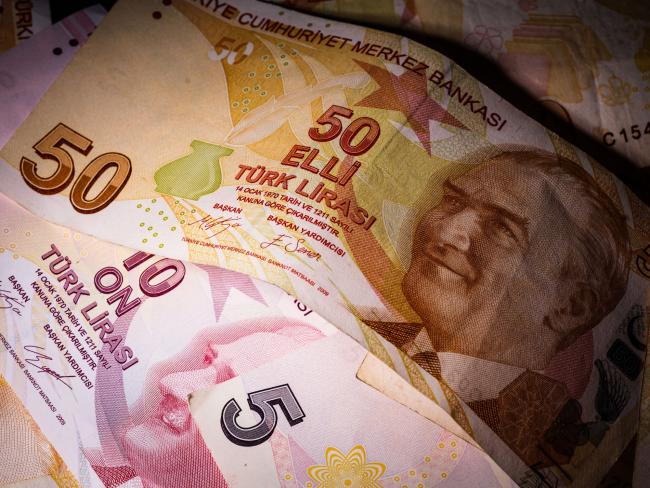(Bloomberg) -- The Turkish lira is under renewed pressure and for some investors that means only one thing: the central bank may have to raise interest rates again.
As the currency tumbled to a seven-month low on Tuesday, Credit Agricole (PA:CAGR) SA warned of a “vicious cycle” that leads to higher inflation and tighter monetary policy. TD Securities, which sees the lira weakening about 20 percent against the dollar this quarter, has penciled in 600 basis points of rate increases through the end of July.
The calls came after authorities ordered a re-run of mayoral elections in Istanbul, raising the risk of political turmoil that threatens to derail efforts to revive economic growth and dash hopes of a possible monetary-policy easing anytime soon. The election commission said the decision was due to violations that marred the vote in March.
The outlook will test the central bank’s pledge to raise borrowing costs if needed to curb inflation and stabilize a currency that’s already the worst performer in emerging markets this year after the Argentine peso. While tightening monetary policy could draw fire from President Recep Tayyip Erdogan, doubt over the bank’s ability to support the currency through foreign reserves mean that options appear limited.
“We all know the Central Bank of Turkey has limited FX ammo to fight a weakening lira,” said Timothy Ash, a strategist at BlueBay Asset Management in London. “So we are back in the scope of them needing to hike rates.”
The Monetary Policy Committee, headed by Governor Murat Cetinkaya, will meet next on June 12, less than two weeks before the new election in Istanbul. It last raised its benchmark rate in September, lifting it by 625 basis points to 24 percent.
While liquidity in the lira swap market is scarce, it offers a sign of what traders are expecting.
The one-month forward implied yield on the lira jumped more than 280 basis points to 27 percent on Tuesday. The move is more pronounced further along the curve, with the one-year cross currency swap surging to almost 30 percent.
Dollar Sales
Meanwhile, Turkey’s state lenders, which bankers say were selling dollars during the weeks that led up to the March 31 vote, have been active again since the decision to annul the elections, according to three people with direct knowledge of transactions.
Government-run banks are estimated to have sold as much as $1 billion over the past 24 hours, the people said, declining to be identified. Since then, the lira declined by around 3 percent to touch 6.1982 against the dollar on Tuesday, its lowest level since October.
